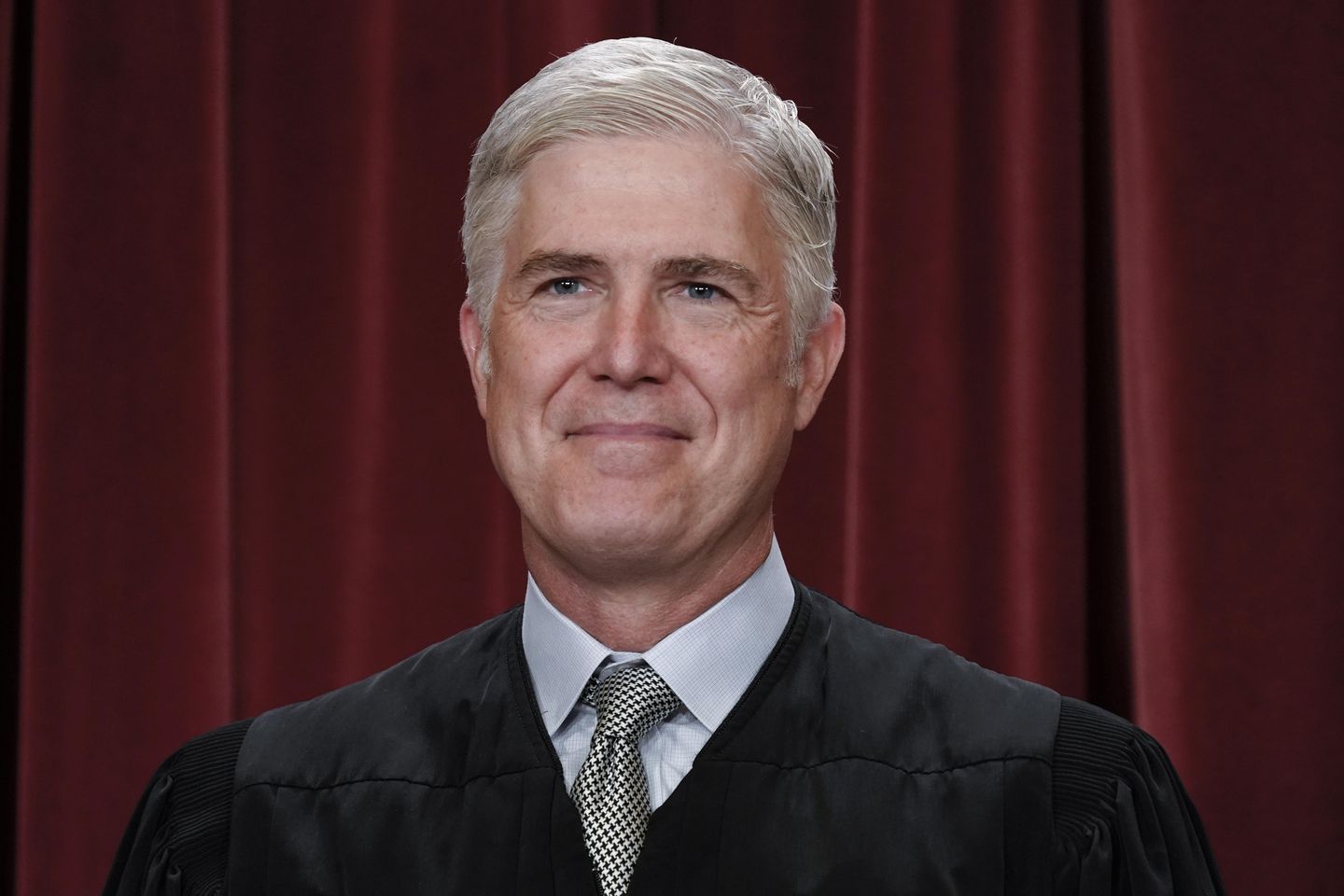
The Supreme Court said Tuesday that when it comes to deadlines for migrants to leave the country, Sundays and holidays can’t be held against them.
In a 5-4 decision, the justices ruled that Hugo Monsalvo Velazquez, who faced a 60-day deadline for self-deporting, could file a new challenge to his deportation even though it came on Day 62.
That’s because Days 60 and 61 were over a weekend, Justice Neil M. Gorsuch said, writing for the majority. He said when a government deadline falls on a weekend or a holiday, it can sometimes be rolled over to the next business day — and that’s how he said immigration law should operate.
“Here, as elsewhere, the term ‘days’ operates to extend a deadline that falls on a weekend or legal holiday to the next business day,” Justice Gorsuch wrote.
He was joined by Chief Justice John G. Roberts Jr. and the court’s three Democratic appointees, Justices Sonia Sotomayor, Elena Kagan and Ketanji Brown Jackson.
Justice Samuel A. Alito Jr. saw the majority’s reasoning as too cute. He said he is “sympathetic” to Mr. Monsalvo Velazquez’s plight but lines have to be drawn, and someone will always fall on the wrong side of them.
“Saturday is a day of the week, and there is no reason why petitioner could not have left the country on or before that date,” he wrote.
Justice Alito said the court’s ruling could be a “windfall” for all the other illegal immigrants facing self-deportation deadlines that fall on a weekend or holiday, giving them extra time compared with migrants whose deadlines fall on regular weekdays.
The case involves what’s known as voluntary departure, which is a form of compelled self-deportation issued in lieu of a formal removal.
Migrants may prefer voluntary departure because formal removal can bring additional severe consequences, such as a lengthy bar on being able to return to the U.S. in a legal status.
In Mr. Monsalvo Velazquez’s case, he has a wife and children here and he faced a 10-year bar if he was formally removed.
Immigration courts found him deportable but granted him a chance at voluntary departure, setting the 60-day deadline. After some appeals and legal wrangling, the Board of Immigration Appeals reaffirmed the deportation order and renewed the 60-day deadline for voluntary departure, which was to end on Saturday, Dec. 11, 2021.
Under the rules, he was able to file a petition to reopen his case if he had new evidence showing why he deserved not to be deported.
Mr. Monsalvo Velazquez submitted his petition to reopen the case through an overnight delivery service on Dec. 10, but under BIA rules it couldn’t be officially filed until the next work day, which was Dec. 12 — after his departure deadline.
Justice Gorsuch said the way he read immigration law, it treated the word “day” to exclude weekends and holidays, at least when it came to the final deadline. And he said administrations dating back to the Clinton years have also accepted that more generous interpretation of the deadline.
But Justice Alito said 60 days means 60 days.
“Petitioner gives us no reason to believe — and I am aware of none — that the roads to Mexico, his home country, were closed; so he could have driven or taken a bus across the border,” the justice said. “He also could have flown to Mexico or any other country that would admit him.”
He said Mr. Monsalvo Velazquez’s petition to reopen his case was “destined to fail on the merits” anyway, so there was no reason to allow gaming the calendar.
Justice Alito, along with the other dissenters, also said the courts shouldn’t have had jurisdiction to even hear Mr. Monsalvo Velazquez’s challenge because immigration law strictly limits the types of cases that can be appealed to the circuit courts.
Those are limited to final orders of removal and legal issues arising from them.
The dissenters said Mr. Monsalvo Velazquez’s appeal wasn’t to his removability but rather to the procedural issue of the deadline.
Justice Gorsuch said the result of the dissenters’ position would be that illegal immigrants would have to file frivolous challenges to their deportations in order to argue their procedural claims.












